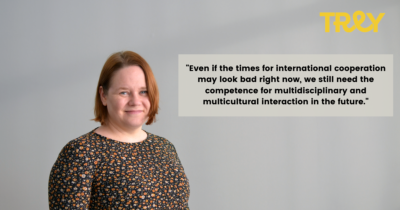These are curious times for the European Union. The UK left the EU ranks just a few days ago and so did a great deal of whiskey and sheep, according to the news. The EU losses are hardly limited to them, as some of the best European universities were also left outside. Luckily European cooperation keeps growing elsewhere: our university is part of the ECIU network of universities, which just last year received a grant of five million euros from the European Commission to launch a new project. The project launch was celebrated last week along with discussions on questions such as what university education will look like in 10–15 years.
The acronym ECIU comes from the European Consortium of Innovative Universities. A total of 12 universities belong to the network that extends all the way from Stavanger in Norway to Barcelona in southern Europe and from Monterrey in Mexico to Kaunas In Lithuania. ECIU’s ambitious goal is to move towards a European University that would revolutionise the way of delivering education. Big words! What it actually means is a change to challenge-based learning. The challenges will be real-life societal problems that multinational and multidisciplinary student teams will work to solve. The project comes very close to practical work life, as the challenges come from the public sector or from the business world. Perhaps this is what the future university will look like: closer connections to practical work life and growing multicultural cooperation.

For students, the ECIU-project provides opportunities to participate in challenge-solving and leave for shorter mobility periods. If for one reason or another you don’t want to go on exchange for a whole term or academic year, you can still have a chance for internationalisation with this project. And believe it or not, even if the times for international cooperation may look bad right now, we still need the competence for multidisciplinary and multicultural interaction in the future.